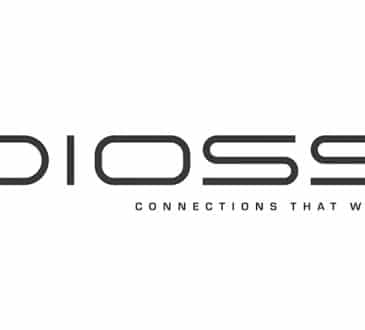Unveiling Strategic Vision in Tech: Jyotishman Sharma’s Journey from Consulting Excellence to AI Leadership

In a rapidly evolving world, strategic visionaries are essential in helping companies navigate through digital transformation. In shaping how companies get value and manage risks effectively, innovation and cultural ethos are vital. Jyotishman Sharma is a leader who has made a significant impact on the industry with his journey from consulting excellence to AI leadership.
Sharma’s career trajectory includes roles in renowned organizations. Starting out by making strategies for clients at Dell Technologies, he then went on to advise Fortune 500 giants on complex business and technology challenges at Ernst & Young (EY). Now, he leads Google’s AI strategy efforts in the Ads business unit. His expertise spans across sectors, giving him a deep understanding of contemporary business landscapes.
His technical acumen and strategic prowess were built upon a computer science engineering degree from Manipal Institute of Technology, India. He also holds an MBA in finance from Indiana University’s Kelley School of Business. These credentials honed his analytical skills and helped him set industry benchmarks that propelled Google’s AI initiatives forward.
In this exclusive interview, we explore Sharma’s thoughts about strategic innovation, challenges, and opportunities in the tech industry, as well as his impact-filled path from consulting excellence into AI leadership.
Jyotishman, what initially got you interested in the technology field? And how has your passion evolved over time?
I was drawn into technology when I was young—I started exploring programming languages when I was young and had a natural inclination towards understanding how things worked. Seeing how transformative it can be in improving lives and solving complex problems really inspired me to make an impact in this field—whatever that might look like. Over time, my passion has evolved into a mission to into a mission to help build transformative solutions that drive growth – for businesses as well as individuals while also respecting and protecting user privacy and security to ensure positive change on a global scale.
Tell us about your system for getting new ideas and discovering new business opportunities. You are known as an outside-the-box thinker; how do you use that to push the envelope with Google’s AI?
To come up with new ideas and identify business opportunities, I try to build a culture of continuous learning and curiosity within the team. I also constantly try to learn from the past and connect the dots in the present. This means I encourage team members always to ask questions and engage in open dialogue with each other. I often have brainstorming sessions where multiple departments come together to share their perspectives and expertise. I also try to stay up-to-date with industry trends, emerging technologies, and market dynamics so I can anticipate future challenges and opportunities for us. This not only drives innovation within my own organization but also means we’re always prepared to capitalize on emerging trends and deliver value-added solutions to our customers.
Can you think of any individuals or role models that have significantly influenced your career path?
Throughout my career journey as a leader, I have been privileged to learn from and work with exceptional people who have significantly influenced my professional growth and molded my leadership style. My family, particularly my parents, taught me strong working ethics, persistence, and a love for continued education. Teachers and mentors gave priceless advice, including industry-specific know-how, strategic thinking tools, and leadership abilities, which are vital in dealing with intricate business issues. Moreover, peers, together with other colleagues, were essential in creating collaborative platforms that promoted divergent views, leading to creative ideas. Individually, these linchpins not only shaped the path of my career but also encouraged me to be a mentor who supports the next generation of technology leaders.
You have had a huge impact on how AI is done at Google, so we would love to know the ways you bring innovation into your work. Could you give us some examples of things you have done to push AI forward in a big way at Google?
One way is to always think of the user first and understand the problems that the user is trying to solve, and then apply artificial intelligence to solve that problem for the user experience and address complex business challenges. For example, at Google, I lead efforts in a cross-functional team to create an AI-powered assistant that will help users solve some of their most commonly occurring and complex problems for Google Ads. With the help of advanced machine learning algorithms (such as the Gemini AI model), this inventive tool will offer personalized, contextual support that assists in campaign optimization and increases results. Besides, it is not only about setting out AI strategies for Google but also looking for new ways through which to use it while working with other teams that are involved in different processes in business development and customer satisfaction.
What do you think separates firms these days? Why should they think about technology adoption any differently?
In today’s high-tech climate, companies are all racing to see who can use emerging technologies like AI the fastest. The trick is to put the user at the center and make the technology work for them, driving innovation at every level while still boosting efficiency and delivering top-notch experiences all around. A lot of successful firms take a proactive approach toward adopting these tools. They focus on continuous learning initiatives, experimentation with new models or concepts, and cultivating a culture where taking risks doesn’t feel like stepping off a plank into shark-infested waters. These companies find embracing change crucial, but they also know not to let certain things go by the wayside, namely data privacy and cybersecurity protections that keep their customers’ trust intact. With all these pieces in place, businesses can position themselves for long-term success.
You have accomplished amazing things in privacy and AI, two areas where many consider you the innovator of record. Can you tell us about some of the specific technological breakthroughs you made in these areas that have driven industry standards or otherwise pushed innovation forward?
When it comes to privacy and AI specifically, I believe my contributions have been meaningful in terms of shaping how business is done. At Google Ads, I led strategic initiatives with user safety at their heart. For starters, Google announced the deprecation of Third-Party Cookies to enhance privacy. It was a big move that helped set the standard for data privacy in our industry, and it wouldn’t have been possible without everyone working together and pairing up with the right teams across the company. But there’s more: my time working on an AI-powered assistant will change how users use support and services in advertising. By using deep learning models and natural language processing techniques, we are building a tool that offers personalized and contextual support based on what users need to fix in their ad accounts. It’s super efficient and effective at resolving issues quickly, all while making sure customers are happy about how they were treated by support.
This stuff doesn’t only impact Google’s customers or the Ad industry but has widespread implications. These combined efforts from everyone involved don’t just affect industry practices; they also contribute toward building a safer digital ecosystem for everybody who uses it.
I know you have an upcoming book, “Mastering Resilience: Transforming Obstacles into Opportunities.” Can you give us a sneak peek at its content?
“Mastering Resilience: Transforming Obstacles into Opportunities” is all about principles of resilience, adaptability, and problem-solving. It basically deals with how to overcome obstacles in a structured and logical way and achieve mastery in a constantly changing world. The book offers practical tools, strategies, and real-life examples of how to thrive even if the environment around you is chaotic. If someone wants to unlock their full potential while pushing boundaries in personal and professional domains, my hope is that this book will help them in that journey.
You have had such a fantastic career that we can only imagine it hasn’t always been smooth sailing. Looking back, though, what were some of the biggest challenges that threatened to hold you back? How did they make you feel, and what did it take for you to overcome them?
Yeah, I won’t lie; it was a wild ride throughout my career, but I realized that there wasn’t any challenge that came my way that was not addressable through structured, innovative thinking paired with a mindset of problem-solving. One of my biggest challenges was trying to navigate rapidly evolving customer needs and market trends when emerging technologies were still new ground for everyone involved. To ensure we stayed ahead of our time, we required cross-functional collaboration because no one person had all the answers, so we relied on our ability to work together while making agile decisions. Another hurdle was scaling operations, which challenged us as we tried to move fast but also wanted to ensure that the foundations were strong for our project. We employed a culture that prioritized collaboration and communication, making sure everyone knew their role and how it contributed to the bigger picture. It was a lot of work, but we managed to overcome these challenges while delivering successful outcomes and driving positive change within the organization and the industry at large.
AI has already created massive disruptions in various industries. However, like any tech advancement, there will be hiccups along the way, especially with our world still learning how these systems work. From your point of view, what do these obstacles look like?
Everyone knows that as soon as AI starts being used in decision-making, businesses have to make sure everything remains transparent, fair, accountable, etc.; otherwise, the user won’t trust them anymore. As much as companies will want to provide exceptional services using algorithmic processes, they’ll also have to find ways to achieve this without putting people’s data privacy, cybersecurity, or regulatory compliance at risk. This requires them to invest heavily in governance frameworks while taking time out of their day so they can ensure all algorithms remain ethical and unbiased. These are just some of the many things companies need to consider before adopting AI because even though it’s good for business, there are potential known and unknown risks that can lead to sub-optimal outcomes. It is a truly paradigm-shifting technology, and we are all learning along the way.
Have you read?
I Am Out of Touch; You Probably Are Too.
My Smartest Mistake.
The Best CEO Forum Hack? Preparation.
Exploring The Crucial Role of Incubators like Accelerate in Business Growth.
Three ‘must do’ for a sustainable CEO. Interview with Livia Firth.
Add CEOWORLD magazine to your Google News feed.
Follow CEOWORLD magazine headlines on: Google News, LinkedIn, Twitter, and Facebook.
Copyright 2024 The CEOWORLD magazine. All rights reserved. This material (and any extract from it) must not be copied, redistributed or placed on any website, without CEOWORLD magazine' prior written consent. For media queries, please contact: info@ceoworld.biz








